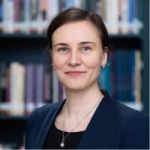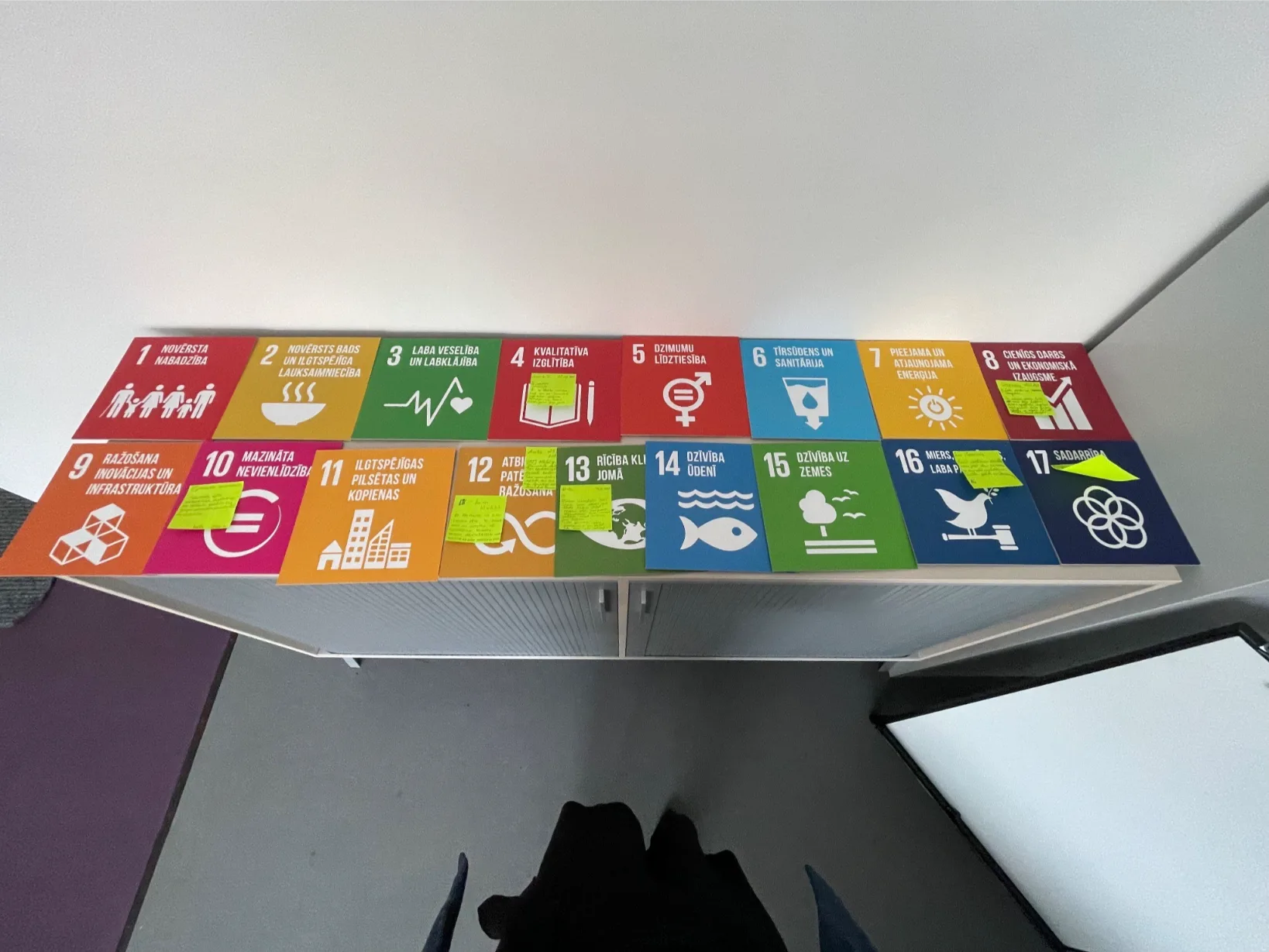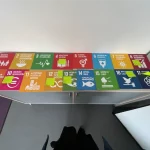Teacher: Daiga Brakmane

Daiga Brakmane
A biologist by training, Daiga joined the Teach for All Latvian branch Iespējamā misija more than 10 years ago to educate children about the environment. She started in the classroom, then led and participated in more than 20 ecology and sustainability-related summer camps and also took care of implementing civic participation in the national curriculum from preschool to upper secondary level. She is now an ecology teacher in a secondary school, an education for sustainable development lecturer in higher education institutions, a global education enthusiast, and a service design student with an aim to help turn communities towards easy-to-access sustainable everyday choices.
Overview
Daiga took over and upgraded a module focused on Education for Sustainable Development which is taught as part of the University of Latvia’s Faculty of Pedagogy, Psychology and Arts Teacher Training course. The updated course has run for one year and was successful at preparing pre-service teachers to incorporate sustainability teaching in their day-to-day classroom activities.
Theory of Change
It was widely recognised that there was a need for a fresh approach to teaching education for sustainable development in schools. This solution allows teachers, regardless of the subjects they teach, to glean valuable insights from each other on the topic, fostering a collaborative and enriching learning environment to empower each other to confidently integrate sustainability discussions into their classrooms.
Approach and Actions
The course is taught through 32 workshops and lectures. During the course teachers also complete reading assignments and submit essays. The course leads the teachers through a developmental process which takes them from researching sustainability to developing the skills necessary to produce lesson plans on specific sustainability topics. Self-evaluation is used throughout the course to strengthen teachers’ understanding of their own strengths and weaknesses. Daiga designed the course to stimulate teachers’ learning through prompting teachers to actively participate and share opinions; encouraging teachers to reflect on where they stand on sustainability and why they feel the need to teach sustainability, so their interests can dictate the course development; teachers also share their personal experiences of sustainability, as some teachers are already carrying out initiatives in the sustainability field; and finally the national situation regarding the Sustainable Development Goals is considered in depth and its implications for scaling education in the field of sustainability is considered. So far more than 50 pre-service teachers have participated in the course.
Impact
After completing the course pre-service teachers developed an understanding of what sustainable development is and have been observed teaching it as a part of the curriculum, when questioned about their teaching it was obvious that their mindsets had changed to focus on including sustainability in their day-to-day teaching. There was also a dramatic shift in all the teachers’ perspectives of sustainability teaching, this applied even to the most sceptical teachers, for example, a Latvian language teacher at the start of the course stated that ‘maybe some of the topics could be associated with sustainability’. In the end, the teacher was sure that ‘all themes are and should be connected with sustainable development topics’.

